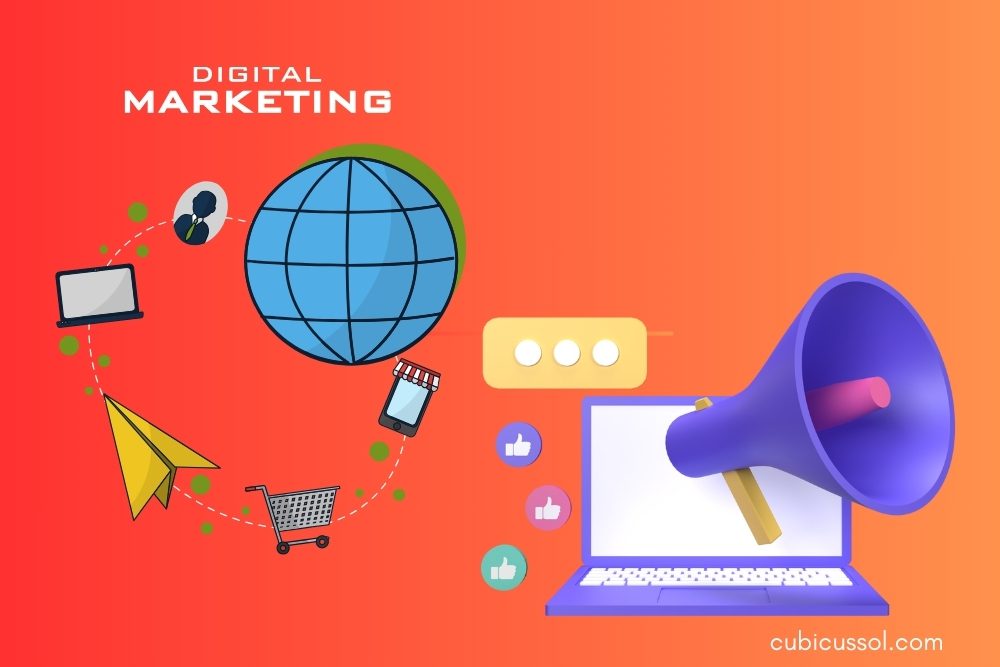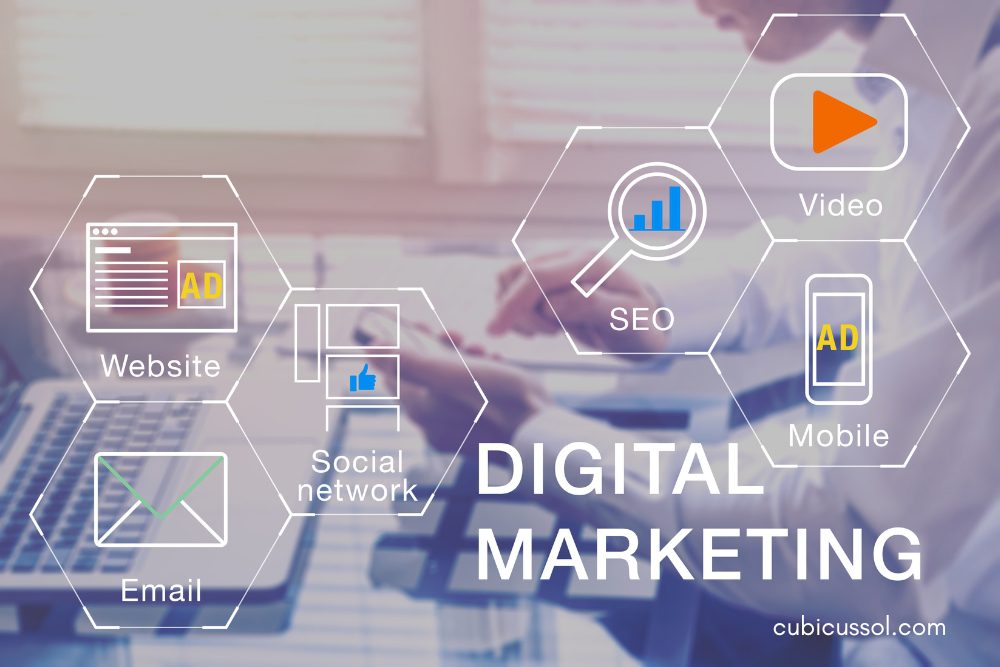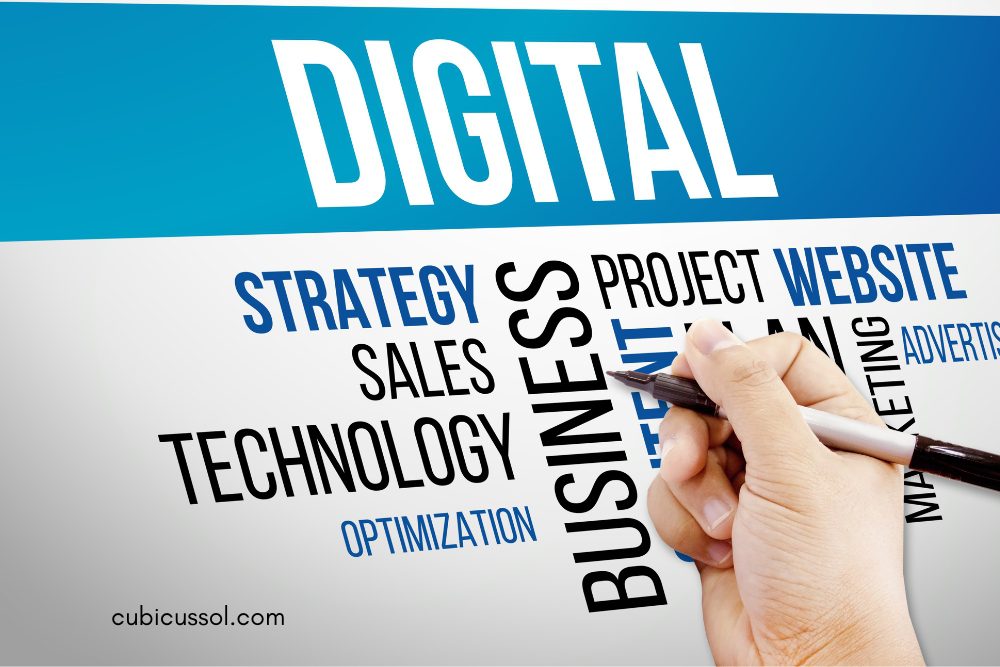Have you ever thought about how businesses progress in this fast-paced digital world? Companies that need digital marketing struggle to make their mark in rapidly growing competition and ever-evolving consumer expectations.
Many companies try marketing strategies on a tight budget to save money, but these efforts don’t always give them the best results. With many manual tasks already on their plates, adding marketing responsibilities might take a lot of work. This is where external digital marketing fits in and can make a much-needed difference!
In this article, we’ll learn about the critical role digital marketing plays in helping businesses progress, from increasing online awareness to driving customer retention. Let’s start without any further ado!
Identifying Companies in Need of Digital Marketing

Small and medium-sized enterprises
Small and medium-sized enterprises (SMEs) are gradually recognizing the importance of digital marketing.
Majority of SMEs believe that digital marketing is important for their growth, yet only few have an established online presence. This gap represents an opportunity for marketing agencies to provide solutions that address the unique challenges SMEs face, such as limited budgets and resources.
E-commerce businesses
E-commerce businesses need effective SEO, targeted social media campaigns, and personalized email marketing to attract and retain customers. Digital marketing can help these businesses increase online traffic, ultimately increasing revenue.
Local businesses
Local businesses like restaurants, retail stores, and service providers can use digital marketing. Google data reveals that 46% of all searches have local intent, it means consumers are looking for products and services near them.
Implementing local SEO, managing online reviews, and using geo-targeted advertising can help local businesses attract potential customers in their area.
Key Components of Digital Marketing

In the digital age, having a grip on key marketing components like SEO, social media, and content marketing is essential for business growth. Let’s see how these components can transform your digital presence:
Search Engine Optimization (SEO)
As of 2024, over 93% of online experiences begin with a search engine, which determines the critical need for businesses to increase their visibility through SEO. Effective SEO strategies involve optimizing website content, meta tags, and backlinks to improve search engine rankings.
Research shows that 70% of marketers see SEO as more effective than PPC for generating sales. This highlights its importance in driving organic traffic and boosting credibility.
Social Media Marketing
Social Media Marketing has changed how brands interact with audiences. With over 5.07 billion active social media users worldwide, platforms like Facebook, Instagram, and LinkedIn are essential for building brand awareness and engaging with potential customers.
Targeted advertising and engaging content can increase reach and build stronger customer relationships.
Content Marketing
Content Marketing focuses on creating valuable, relevant content to attract and retain a target audience. Research indicates that content marketing generates over three times as many leads as traditional marketing.
Effective content marketing includes blog posts, videos, and infographics that address audience pain points and provide solutions. This approach not only improves brand authority but also drives traffic and conversions by delivering customer-centric information.
Industries That Benefit Most from Digital Marketing

Nowadays, industries across the board are utilizing digital marketing to drive growth and engage their target audiences. Here are the major industries that benefit from digital marketing:
- Healthcare and medical practices see significant benefits, with digital marketing strategies helping them reach potential patients and build trust through content marketing and social media engagement.
- The real estate sector thrives on digital platforms, where virtual tours and targeted ads attract potential buyers and increase visibility in a competitive market.
- Education and e-learning utilize digital marketing to expand their reach, attract students through targeted ads, and engage learners with valuable content.
- Hospitality and travel industries benefit greatly from digital marketing by showcasing destinations and experiences through visually appealing campaigns and customer reviews.
- The food and beverage sector uses social media to create buzz around new products and promotions, which leads to customer loyalty.
- Technology and software companies drive lead generation and product awareness through SEO, content marketing, and online demos.
- Financial services use digital marketing to build credibility and attract clients through educational content and targeted advertising.
- Automotive industries use digital channels for lead generation and customer engagement.
- Fashion and beauty sectors leverage influencer partnerships and social media to drive brand awareness and sales.
- Entertainment and media companies use digital marketing to engage audiences with targeted promotions and content which eventually improve their reach and impact.
Implementing Digital Marketing Strategies

Creating a marketing plan is the main pillar of any successful digital marketing strategy.
The plan should start as below:
- Setting measurable goals aligned with business objectives
- Identifying the target audience
- Electing appropriate digital channels.
Effective planning involves a mix of SEO, content marketing, social media, and email campaigns to make sure it’s reaching a broad audience.
Businesses can track website traffic, conversion rates, and customer engagement metrics using tools like Google Analytics. Regular analysis allows for data-driven decisions, campaign optimization, and strategy adjustment based on real-time performance.
A report by eMarketer indicates that companies allocating 40% or more of their marketing budget to digital channels see higher returns on investments.
Proper budgeting ensures that resources are accurately distributed for the best results while maintaining financial stability.
Overcoming Common Challenges

In the fast-changing digital world, businesses face challenges that can restrict their growth and effectiveness.
Trends
One major challenge is staying updated with trends. According to a report by HubSpot, 65% of marketers say staying up-to-date with industry trends is their biggest challenge, as the digital world evolves rapidly with new tools and platforms emerging regularly.
Competition
Another hurdle is dealing with competition. With over 5.07 billion people online, competition is fierce. A study by SEMrush found that 61% of businesses struggle to keep up with competitors’ strategies, often leading to stagnated growth if they don’t innovate.
Lastly, adapting to market changes is crucial but challenging. Consumer preferences shift quickly, and businesses must be agile to remain relevant.
However, overcoming these challenges requires a proactive approach, like staying informed through industry news, using competitive analysis tools, and being flexible and adaptable to the newest market trends. These practices help businesses survive and thrive in a competitive and ever-changing marketplace.
FAQs
Q1: What types of companies need digital marketing?
Ans: Companies of all standards need digital marketing to stay ahead. Research shows that 78% of small businesses believe digital marketing is crucial for their growth, as it helps build brand awareness and generate leads in an online marketplace.
Q2: How much should a company budget for digital marketing?
Ans: Industry standards suggest companies allocate 7-10% of their revenue to digital marketing. Companies with effective digital marketing strategies see an average return on investment of 20%.
Q3: What are the most effective digital marketing channels?
Ans: Social media, email marketing, pay-per-click advertising, and search engine optimization (SEO) are among the most effective digital marketing channels.
Conclusion
Given the evolving online business and increasing competition, outsourcing digital marketing not only provides access to expertise but also allows firms to focus on their core operations.
While in-house efforts and budget-friendly strategies are valuable, the benefits of professional digital marketing services, evidenced by improved efficiency and fast growth, make them a wise investment for long-term success.
Click here for a free consultation on your business digital marketing!
